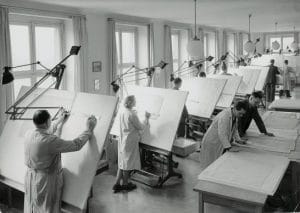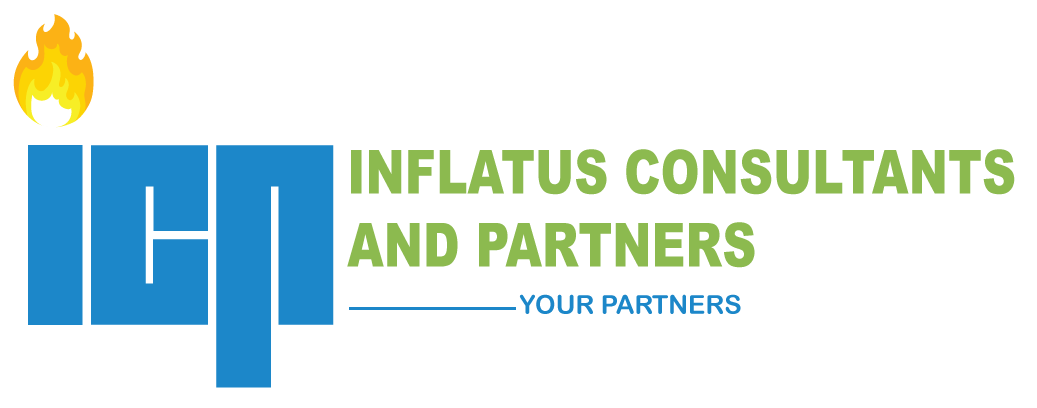Will Your Job Be There Tomorrow?
A major transformation, call it revolution if you will, has been taking place in the work place in the last 30 years. It has affected both the employer and the employee. Many employees have not only been rendered jobless but also unemployable due to obsolescence of skills.
The prognosis for the next 15 – 25 years is grim, for people with obsolete skills.
Ira Wolfe, in a 2013 essay published by Success Performance Solutions, one of the premier providers of employment testing, leadership tests, and applicant tracking software for small and medium sized business, citing a study by the American Department of Labour, states that “65 percent of today’s students will be employed in jobs that don’t exist yet”. Furthermore, according to him, “that also means that many currently employed workers, for the first time since the industrial revolution, must be thinking about what they will do to make a living 10 to 20 year from now. Rapid technological change is changing the skill requirements for most jobs”
This represents both an existential threat and an enormous opportunity. It represents an existential risk to those who do not know what to do, or are not willing to change, in order to take advantage of the situation. However, the future could not have been brighter for those who embrace change.
Eric Hoffer said, “In times of change learners inherit the earth; while the learned find themselves beautifully equipped to deal with a world that no longer exists.” That is a succinct description of the marketplace that present and future employees will face – a marketplace that does not yet exist. In other words, it will be very different from what we know today.
The big question is this: ARE YOU PREPARED OR PREPARING FOR IT?
Remember that not too long ago, typing was a prized profession for young men and women. I remember my uncle made a fortune from training typist and running his own typing pool and typewriter repair shop. In those days, this training

led to this: The Confidential Secretary – a very powerful position in any organization.

Or it led to this: Secretary/ Typist – equally powerful position

Also, in those days, this was a lucrative business that employed and enriched many.

However, today, they do not exist anymore. At least, not in the same form.
But all that changed when this arrived.

The boss now writes his own mails himself.
The job now exists in a transformed and enriched form! It largely remains in an enriched form as Personal Assistant.
Also, in the days when the typewriter ruled, the Drawing Board was king among technical people. In those days desktop drafting was a lucrative profession and running a drafting office was a major business. In those days…This training

led to this

Or this

Again, they are gone for good, not because the service is no longer required but because the mode of delivery has changed. It has been transformed!
This is the same job in a new suits.

This job transformation exists wherever you turn. It holds implication for educators. They need to teach students and employees skills to solve problems we have never seen before and will not see for years.
The ramifications of this transformation will be so far reaching that hardly any business or profession will be spared. For instance, accounting will move from merely preparing and filing papers to financial advisory. Same for librarians: The librarian of the past was an expert with the Dewey Decimal System. The new librarian will be a digital archivist, savvy with searches, keywords and helpful websites.
Even the legal profession is beginning to feel the heat. A May 2016 article in Forbs Magazine reported that a leading American legal practice, BakerHostetler, founded in 1916, has hired a ‘Digital Attorney‘ named ROSS, a legal research assistant to help scale the abilities of lawyers through artificial intelligence technology.
Yet another 2015 study by CBRE Group, Inc., reputed to be the world’s largest commercial real estate services and investment firm, with 2016 revenues more than $13 billion and more than 75,000 employees, reports that 50% of occupations today will no longer exist in 2025. It goes on to state that new jobs will require creative intelligence, social and emotional intelligence and the ability to leverage artificial intelligence. Those jobs will be immensely more fulfilling than today’s jobs. Workspaces with row of desks as we know them today will be completely redundant. Not because they are not fit for purpose, but simply because that purpose no longer exists.
Also, on 6 July 2017, the Gulf Times reported that “a robot clocked on for its first shift on reception at the Shoreditch offices of media agency Brainlabs. The 4ft assistant Pepper has a screen in its chest and can identify emotions and adapt its responses. At £26,000 it is cheaper than a human over time. But the firm said no one lost their job — and it wants to automate “basic work because it leads to the creation of new jobs”
 Robot Receptionist
Robot Receptionist
Still, another interesting study by Elon & Pew Research Centre, found that the most highly valued skills that will be required will be the tough-to-teach intangibles such as emotional intelligence, curiosity, creativity, adaptability, resilience and critical thinking.
I guess it should be very clear by now that the work place and jobs, 10 to 20 years from today, will be significantly, if not totally, different from what they are today. I will come back to this point shortly.
Finally, the 15 June 2017 edition of Daily Trust, a Nigerian Newspaper, reported that MTN and Airtel Nigeria have explained why they sacked workers in the recent restructuring of the organisations. The two companies are reported to have told the Parliamentary Committee on Telecommunications that some of the staff were disengaged due to inability to fit into the new technological developments (emphasis mine). Because of the disengagement, they said, additional vacancies were created and that the firm would soon employ 240 staff to replace them.
The question that one needs to ask himself is: “will I still be employable should I still need to work?” Putting it another way, “will the skills I have now still be required 10 – 20 years from today, should I still have the need to work?”
This brings me to the story of my former colleague. I will call him Tom.
I will tell you about Tom next week. Please, don’t let what happened to Tom happen to you.


